E-commerce Software Development Company
Empowering the retail industry with custom software solutions
As a pioneer retail software development company, we use the latest technologies, such as artificial intelligence, machine learning, IoT, and extended reality, to create custom software development solutions for retail and e-commerce. From custom e-commerce platforms to point-of-sale software, CRM, and inventory management software, we design a unique software solution to optimize every aspect of your retail and e-commerce operations.

-
Top Rated Talent
-
IP Protection & Strict NDA
-
Quick & Easy Onboarding Process
-
Flexible Hiring Models
Retail Software Development Services We Provide
We are a complete retail software development company that creates custom digital solutions using best practices in the industry. Our mobile and web developers take a comprehensive approach to building your retail software that can be used on all major devices and platforms.
Retail Software Development
Our team of development experts works closely with clients to understand their requirements and deliver innovative software solutions. These custom software development solutions, such as point-of-sale systems and inventory management, personalize shopping experiences, streamline operations, and boost sales.
Optimization and operational consulting
With proven years of experience in the field, we help improve stalled business workflows. Our developers strategically plan system integration, data management and review your digital experience strategy to provide you with logical and operational workflows.
Technology and market entry consulting
Our technology architects will guide your business toward an optimal e-commerce platform by performing in-depth market research and navigating market entry complexities. Hire software development experts to acquire tailored platform recommendations and execute your ideation successfully.
eCommerce integration and testing
By thoroughly testing the website functionality and integrating ERP into digital solutions, our development experts create web solutions with enhanced functionalities. From enhancing SEO to boosting online visibility and delivering an exceptional user experience, our integration and testing services cover it all.
eCommerce software development
We develop advanced software solutions for e-commerce businesses. Our tailored e-commerce software includes simplified shopping carts, mobile-friendly platforms, easy product management, secure payment integrations, and user-friendly designs. Hire to software developer to acquire reliable retail software development services.
Webstore setup
Our developers specialize in creating online stores that bring your e-commerce vision to life. They craft perfection in mobile-optimized solutions by creating compelling front-end design and robust back-end development. With our developer's expertise, you can experience enhanced satisfaction and an aesthetically pleasing experience at every step.

Redefine the capabilities of your retail and e-commerce system with an advanced tech stack and our team of expert developers.
Retail Software Development Solutions We Provide
We develop modern eCommerce solutions, including supply chain management, POS software, and order management, for both B2B and B2C businesses. These solutions help businesses reach their target customers and increase sales. Hire a dedicated software development team to acquire a feature-rich software solution for your retail and e-commerce business.
Ecommerce Solutions
We build complete e-commerce platforms that smoothly handle product listings, carts, checkouts, and customer interactions. Our platforms have advanced security features to provide a safe and easy shopping experience, boosting sales and expanding your online presence.
Supply chain management solutions
Our developers create customized systems for managing supply chains that can handle tasks such as predicting demand and fulfilling orders. These systems make your supply chain processes more efficient and cost-effective. With our expertise, you can improve coordination and get the most out of your supply chain operations.
Point of sale solutions
With years of experience in the field, our development experts create and improve POS software that makes sales, inventory management, and customer relationships easier at retail stores. Our solutions speed up the checkout process and show real-time sales data, helping you better assist your customers.
Inventory management solutions
Excelling in custom development, our programmers create customized systems to help you manage your inventory. Our systems use real-time information and predictions to ensure you always have the right products in stock. Our expertise can help you improve your inventory processes and make your retail operations efficient.
Retail business intelligence solutions
Creating custom Business Intelligence solutions for the retail industry to help businesses understand market trends, customer preferences, and day-to-day operations. With this information, retailers can make better decisions, improve marketing strategies, and predict future trends to increase sales and profitability.
Order management solutions
We design and develop systems for managing orders. From receiving them to delivering them, our solutions make them more efficient. By enhancing accuracy and reducing the time it takes to process orders, our systems make customers happier and make shopping easier, whether it's online or in a store.
Why Partner with YTII for Retail Innovation?
As a leading retail software development company, we have created secure, customized, and sustainable digital solutions for various industries. Our proven track record demonstrates our ability to deliver smooth development, advanced features, and dedicated support, making us the ideal choice for strong and cutting-edge retail and e-commerce projects. Here's why we stand out as your top choice:
- Highly Skilled and Top Rated Developers
- Direct Access to the Developer As Your Own Employee
- Dedicated Relationship Manager
- CI/CD Best Practices
- Core Engineering Team Support
- Devops Team Support
- Data Security & IP Protection
- Excellent Communications Skills & Timezone Overlap
Facilitating retail and eCommerce with innovative solutions
Every retail industry demands different solutions to cater to its specific business goals. Leveraging our developers' expertise, we provide innovative retail software solutions for all your e-commerce development needs.
eCommerce solutions
- Expertise in the latest technologies
- Third-party integrations
- Customized e-commerce solutions
- Secure payment gateways
- Analytics and reports
- Regulatory compliance and CRM

Cloud and mobility solutions
- Cloud consulting and assessment
- Management and operations
- Seamless migration services
- Cloud and mobile strategy
- Support and maintenance

App support and maintenance
- Merchandising planning and execution
- Rich domain knowledge
- Flexible business process
- Multi-channel management
- Agile issue management

Digital transformations
- Aesthetic customer experience
- Actionable insights
- High individualistic engagement
- Smarter customer interaction
- Engage through Omni-channel

Enhance your business strategies with valuable and real-time customer insights
Get your custom retail software designed by the top 1% of development experts and gain a competitive edge with data-driven insights.
Technical Expertise of our Retail Developers
Advanced Tech Stack we use for Retail Software Development Services
Leveraging advanced technologies like IoT, AI, and ML, we deliver a customer-centric e-commerce solution and retail software development service with a touch of personalization.
AI & ML
Using advanced technologies like Artificial Intelligence and Machine Learning, we curate personalized user experiences by enhancing the varied aspects of retail and e-commerce operations. Our expertise in AI and ML enables us to develop systems with customized customer interactions, automating supply chain decisions and optimizing inventory management.
IoT
Our retail software solutions use the Internet of Things capabilities to optimize retail processes and monitor them in real-time. By analyzing and gathering data from several IoT devices, such as wearables, across the retail environment, we offer actionable insights that enhance customer engagement, inventory management, and entire store management.
Cloud Computing
Using platforms like Google Cloud platform, Amazon Web Services (AWS), and Microsoft Azure, we ensure enhanced scalability and seamless integrations for our custom retail software solution. From e-commerce systems to customer data management systems, our cloud-based solutions enable retailers to improve data accessibility, streamline operations, and quickly adapt to the changing market requirements.
AR and VR
With the capabilities of augmented reality and virtual reality, we design custom software development solutions with an interactive 360-degree virtual outlet using a dedicated AR application. Hire top development experts to leverage the power of extended reality for your retail management system.
RPA
Our developers use RPA technology to automate repetitive tasks for eCommerce businesses, reducing the need for a large workforce. Save on costs by hiring RPA developers to get top-notch e-commerce solutions.
AI & ML
Using advanced technologies like Artificial Intelligence and Machine Learning, we curate personalized user experiences by enhancing the varied aspects of retail and e-commerce operations. Our expertise in AI and ML enables us to develop systems with customized customer interactions, automating supply chain decisions and optimizing inventory management.
IoT
Our retail software solutions use the Internet of Things capabilities to optimize retail processes and monitor them in real-time. By analyzing and gathering data from several IoT devices, such as wearables, across the retail environment, we offer actionable insights that enhance customer engagement, inventory management, and entire store management.
Cloud Computing
Using platforms like Google Cloud platform, Amazon Web Services (AWS), and Microsoft Azure, we ensure enhanced scalability and seamless integrations for our custom retail software solution. From e-commerce systems to customer data management systems, our cloud-based solutions enable retailers to improve data accessibility, streamline operations, and quickly adapt to the changing market requirements.
AR and VR
With the capabilities of augmented reality and virtual reality, we design custom software development solutions with an interactive 360-degree virtual outlet using a dedicated AR application. Hire top development experts to leverage the power of extended reality for your retail management system.
RPA
Our developers use RPA technology to automate repetitive tasks for eCommerce businesses, reducing the need for a large workforce. Save on costs by hiring RPA developers to get top-notch e-commerce solutions.
Retail and eCommerce Software Development Solutions for diverse industries
Fashion and apparel
Become a trendsetter by providing exceptional customer experiences combined with outstanding performance.
Specialty retail
Developing customer-centric services to increase your responsiveness and overcome market challenges.
Health and wellness
Stay in shape, reach new markets, and improve your business with mobility solutions and insightful analysis.
Grocery merchandise
Make a difference with technology and a well-managed supply chain to achieve revenue growth.
Fashion and apparel
Become a trendsetter by providing exceptional customer experiences combined with outstanding performance.
Health and wellness
Stay in shape, reach new markets, and improve your business with mobility solutions and insightful analysis.
.png?width=487&height=306&name=Retail%20and%20eCommerce%20Software%20Development%20Solutions%20for%20diverse%20industries(1).png)
Specialty retail
Developing customer-centric services to increase your responsiveness and overcome market challenges.
Grocery merchandise
Make a difference with technology and a well-managed supply chain to achieve revenue growth.
YTII's Retail Software Development Timeline
At YTII, we recognize the importance of meeting deadlines. Here are the estimated timelines for obtaining an innovative software solution or mobile app development for your retail and e-commerce project.
Retail Software
Development Project Initiation
Less than 7 days
MVP Release
Within 2-3 months
New Retail
Software Versions
Within 30 days
Our Success Stories
We assist both new and emerging startups in developing MVPs, forming teams, and gaining access to cutting-edge technologies. From application creation to modernization and maintenance, our 360° enterprise solutions cover it all.
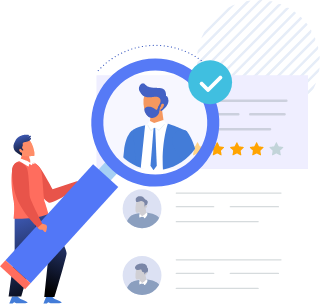
GoHire
Leading Application Tracking System (ATS) in Europe
Project Scope- GoHire wanted to build a robust hiring solution for SMEs globally that allowed them to hire the right candidates for their organization easily and quickly.
Solution Delivered- After a detailed discussion with clients regarding the project requirements, YTII recommended the Product Engineering Model of the Offshore Development Center
Read Full Story
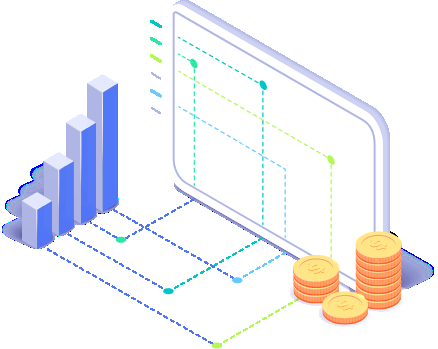
Dorey Finance
Actuarial Technology (AcTech) company in Guernsey
Project Scope – The client wanted to upgrade its financial tool to improve user experience, reduce operational costs, and address performance issues caused by outdated technology.
Solution Delivered – We helped them deploy a senior developer within two weeks, upgraded tech stack, and optimized performance and overall operational efficiency.
Read Full Story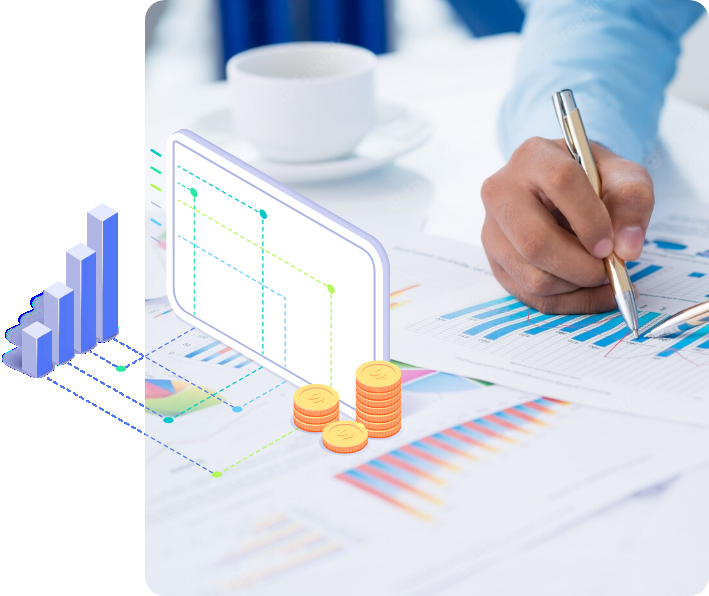

Finding You
Robust Dating App in Luxembourg
Project Scope – Finding You wanted to create a dating app combining astrology and psychometric analysis and build a budget-friendly, user-friendly matching engine.
Solution Delivered – The app was built with advanced astrological charting and filtering features, while marketing efforts helped expand the user base globally.
Read Full Story
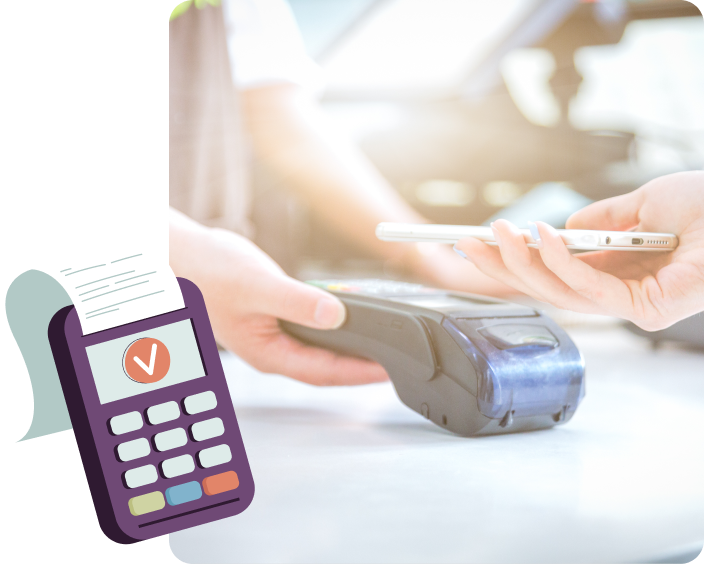
Gettrx
Leading Payment Gateway in US
Project Scope – Gettrx sought a dependable team of experienced IT resources that took care of end-to-end development and management of the solution while ensuring code standards were being met at all time.
Solution Delivered – Your Team" in India deployed highly skilled software engineers with 6+ years of experience in handling complex product development in an agile work model
Read Full Story
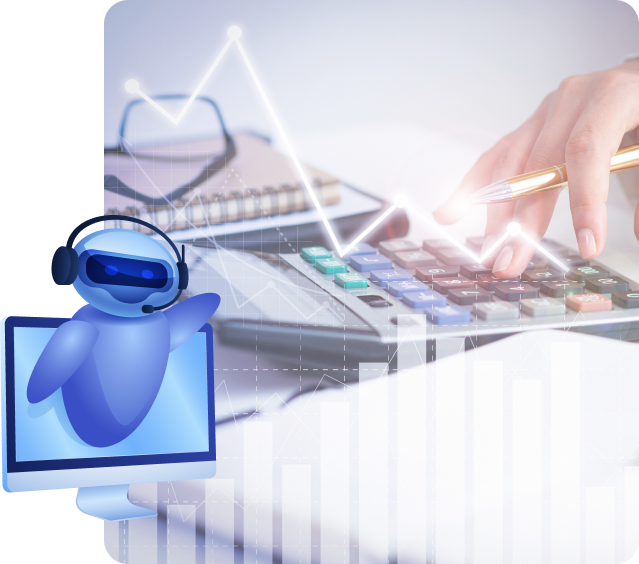
Plena Data
Financial Process Automation (USA)
Project Scope – The client sought an offshore software development company that could provide them with the right talent to build premium-quality bots in a quick turnaround time while ensuring complete IP protection.
Solution Delivered – With a team of highly skilled professionals working on developing RPA solutions, the client was able to deliver high-quality bots to their customers quickly and efficiently.
Read Full Story
Clients’ Testimonials: Establishing Digital Trust
We love partnering with new clientele! YTII has more than 3000 satisfied clients who continuously support us via their feedback, more projects, and suggestions.

Using offshore development services by Your Team in India, we hired highly skilled developers who helped us build a robust and scalable candidate automation solution. Their hands-on project management and seamless communication never made us realize we were working with an offshore partner.

We were highly impressed by the hands-on approach shown by Your Team in India. After understanding our requirements, they quickly arranged interviews with their talented developers. Our offshore team was ready and working on the project within a few days. We worked with highly-talented and experienced developers who helped us improve the product while ensuring they met all delivery milestones.

We could not have asked for a better partner than Your Team in India to manage our product. Our offshore development team of experts always shares insights on improving our solution.

Your Team in India is genuinely a partner you can count on. With over 1.5 years of experience working with them, I have witnessed their unwavering commitment to understanding their clients' passions and delivering exceptional results. I highly recommend them as a reliable and dedicated outsourcing partner.

Amit and his team are great. They were able to complete the requested job faster than I had expected and went above and beyond to identify things I was unaware of. They went on to make these other small corrections without additional cost during the updates. I have hired this team before and will hire them again, as I am reminded of their high level of professionalism, integrity and ability... Thanks Amit !!.

Your Team in India has been our partner since the start of TeleCloud’s automation journey. Their in-depth consulting capabilities, easy to comprehend plans and a ground up, practical implementation approach helped us automate multiple processes within the organization. At present, YTII has implemented more than 50+ bots that sort various day to day accounting, book keeping and compliance related processes for TeleCloud. We believe our drive for automation has just begun and will continue till we enable a bot for every process that can be automated.

YTII’s pool of talent is incredibly efficient. They gave us unabridged access to the best full stack developers, enabling us to build an amazing product- one that’s best to our capabilities.
User Guide to Retail Software Development
When hiring a retail and e-commerce software developer, it's important to look for a blend of technical skills, industry-specific knowledge, and soft skills to ensure they can effectively contribute to your projects. Here are some key skills to consider when hiring retail software developers for your project:
- Proficiency in languages like HTML, CSS, PHP, Python, and JavaScript.
- Familiarity with e-commerce frameworks and platforms such as Salesforce Commerce Cloud and Magento.
- Knowledge of front-end frameworks such as Vue.js, Angular, or React, and familiarity with backend frameworks like Django and Node.js.
- Proficiency with NoSQL databases (MongoDB, Cassandra) and relational databases (MySQL, PostgreSQL)
- Strong abilities to integrate third-party APIs, such as shipping services, CRM systems, inventory management tools, and payment gateways like Stripe and PayPal.
- Knowledge of security procedures and practices, such as data encryption, secure coding techniques, SSL, and adherence to PCI DSS standards.
- Proficiency with Git and other version control systems.
- Ability to maximize the responsiveness, scalability, and load times of websites.
- Practical experience working with well-known e-commerce platforms and their modifications is required.
- Strong analytical abilities to quickly and effectively identify and resolve technical problems.
A retail software developer who creates, modifies and manages e-commerce apps and websites with a focus on user experience, security, and high performance. They play a crucial role in improving retail operations, enhancing customer experiences, and driving business growth. Here are the key roles and responsibilities of a retail software developer:
- Design and develop retail applications, such as point-of-sale (POS) systems, inventory control systems, e-commerce platforms, and customer relationship management (CRM) programs.
- Write effective, readable, and maintainable code by using the appropriate programming languages and frameworks.
- Include third-party services like analytics platforms, marketing tools, shipping services, and payment gateways.
- Assure smooth data transfer between various systems, including inventory management, CRM, and ERP.
- Work closely with designers to develop user-friendly interfaces that improve the consumer experience.
- Make sure apps are adaptable and function well on a range of screens and devices.
- Create and maintain databases to guarantee effective data retrieval and storage.
- Implement data security measures to safeguard private client and company information.
- Optimize the responsiveness, scalability, and load times of your applications.
- Identify and fix software bugs and performance bottlenecks.
- Evaluate the viability of adding new features and improvements.
- Implement CI/CD practices to streamline the development process and maintain code quality.
A custom retail software must be equipped with all the must-have features that benefit businesses in a real manner and help them make more informed decisions. Let’s check out some of the must-have features of retail and e-commerce software.
Sales Reporting and Analytics
The software should provide detailed sales reports and data analysis to help retailers make better business decisions. This includes tracking sales trends, identifying the best-selling products, and improving staffing and marketing strategies.
Inventory search and management
Gone are the days of staying up to calculate inventory. POS inventory management is a must-have feature that enables retailers to track inventory systems in real-time. Businesses can easily and efficiently track supply levels by integrating orders and in-store purchases.
Shortcut keys
A good retail system should have buttons on the screen for the items or categories that are bought most often. This way, cashiers can speed up the checkout by pressing a button.
Payment options
When an online retail store makes payments easier for customers, they tend to buy more. That is why a retail software system should be equipped with a POS system and payment processor that allows customers to make payments through major debit and credit cards.
Omnichannel integration and management
Having an in-store and online presence maximizes businesses' sales and profits. However, customers often prefer retail stores, where they can choose any option while purchasing. Therefore, the point of sale must support an omnichannel experience.
Mobility
Many businesses opt for a mobile POS system to enhance customer convenience and streamline the checkout process. Customers prefer to avoid waiting in lines, and that is where mobile POS helps. Therefore, the software solution must be equipped with a mobile POS system to let the customers check out anywhere on the sales floor while providing them with a more personalized experience.
Employee management
Along with managing and monitoring finances and supplies, retail software must be equipped with features to track and manage employee productivity. Such tools help create a more reliable and efficient workplace in which the employees' work can be figured out and appreciated easily.
Third-party software integrations
Many retail software have third-party software integrations that enhance customer management and support, leading to more efficient operations. Third-party integrations can help businesses adopt new functions, offer targeted promotions, and maintain customer loyalty programs. Some popular software integrations include CRM software, loyalty program software, and scheduling tools.
Scalability
Retail online stores must be designed with scalability in mind. As the business expands, the software can also be scaled up based on changing business requirements to handle complex retail operations.
Hire developers to acquire top-notch retail software solutions with advanced features.Integrating secure payment gateways is essential to the custom retail software in order to guarantee that consumer transactions are secure and seamless. Here's what you should integrate for the secure payment gateway:
Payment Gateway Selection
Select a reputed payment gateway integrated into your software that offers robust security features, supports multiple payment methods, and complies with industry standards.
PCI Compliance
To protect consumer cardholder data, make sure your eCommerce platform and payment gateway comply with Payment Card Industry Data Security Standard (PCI DSS) regulations.
SSL Encryption
Incorporate SSL encryption to ensure that the customer's data—especially sensitive information like credit card details — is protected during transmission between the payment gateway and the online store.
Tokenization
Tokenization can be used to lower the risk of data breaches by substituting a unique token for sensitive customer payment information.
Fraud Prevention
Use the payment gateway's fraud detection and prevention tools, such as 3D Secure protocols, address verification services (AVS), and card verification value (CVV) checks.
Payment Method Support
Incorporate widely used payment methods like credit/debit cards, digital wallets (like PayPal and Apple Pay), and other payment choices to accommodate a range of consumer preferences.
Testing and Monitoring
To guarantee smooth payment processing, thoroughly test the system. Then, periodically check transactions for any unusual or fraudulent activity.
In eCommerce, delivering a flawless customer experience requires the implementation of efficient order fulfillment and shipping systems. Below are some key considerations for ensuring an aesthetically pleasing customer experience.
Shipping Carrier Integration
Incorporate shipping carriers to automate the process of shipping label creation, package tracking, and rate calculation. You can also provide multiple shipping options to accommodate the customer preferences.
Customer Communication
Clear communication with customers is of the utmost importance, as it leads to greater satisfaction. Therefore, maintain effective communication throughout the order fulfillment process, providing shipping notifications, proactive updates, and order confirmations using push notifications, chatbots, and more.
Tracking Mechanisms
Provide customers with tracking information. Let your customers monitor the status of their shipments. You can also integrate tracking notifications to keep your customers updated about their orders.
Order Management System
Include an order management system within the software to centralize and streamline incoming order processing, customer communication, and order tracking.
Fulfillment Workflows
Define efficient workflows to handle order fulfillment, including picking, shipping, and packing processes.
Inventory Integration
Connect your order fulfillment system with your inventory management system. This will help you keep track of stock in real-time and prevent selling or shipping products that are not available.
Returns and Exchanges
Establish a clear and user-friendly returns and exchanges process. Also, it provides guidelines for customers to initiate exchanges and returns, track their return shipments, and receive refunds or replacements on time.
Having the processes streamlined, enhanced access to medical resources, and seamless communication between healthcare professionals and patients are just a few reasons for having a healthcare mobile app. In reality, it brings a myriad of benefits for patients and healthcare facilities. Let's check out some of them:
Data-driven decisions
With healthcare software development solutions, businesses can thoroughly analyze all the data and navigate the loopholes accordingly. This can help in making data-based decisions, accurate diagnosis, and effective treatment.
Accurate health management results
Healthcare management software can help organizations interact seamlessly and determine accurate health management results.
Improved data security
Healthcare software designed to meet international health information security standards and regulations provides a robust shield for patient data, ensuring enhanced data security.
Enhanced patient loyalty
With digital healthcare software solutions, the manual optimization and maintenance of lab records, treatment, and tracking processes are eliminated. Maintaining a standard of care and coordination certainly enhances the patient's loyalty.
Using analytics platforms
Healthcare departments can evaluate the risks of chronic diseases like cancer by leveraging data from clinical trials, CRMs, and other varied digital repositories. This can easily be done by conducting a thorough analysis and using predictive methods.
Minimize risks of misdiagnosis
Using health apps reduces the chances of making mistakes in diagnosis. Manually managing patient records can lead to errors and take up a lot of time. Health apps help avoid these problems, which can be dangerous for the patient.
24/7 Healthcare Access
Mobile health apps make it easy for patients to send messages, schedule appointments, and connect with care providers for telemedicine visits 24/7.
Efficient Data Management
Healthcare organizations process a lot of personal information every day. It's important to organize it properly. When connected to EHR, healthcare apps record patient information from devices or wearables, helping providers create complete patient profiles and comply with HIPAA.
Improved Patient Engagement
Today, providing quality care to patients is more important than ever. Mobile health (mHealth) apps help engage patients by focusing on their needs, providing personalized experiences, and sharing knowledge between patients and healthcare providers.
When hiring a retail and e-commerce software developer, it's important to look for a blend of technical skills, industry-specific knowledge, and soft skills to ensure they can effectively contribute to your projects. Here are some key skills to consider when hiring retail software developers for your project:
- Proficiency in languages like HTML, CSS, PHP, Python, and JavaScript.
- Familiarity with e-commerce frameworks and platforms such as Salesforce Commerce Cloud and Magento.
- Knowledge of front-end frameworks such as Vue.js, Angular, or React, and familiarity with backend frameworks like Django and Node.js.
- Proficiency with NoSQL databases (MongoDB, Cassandra) and relational databases (MySQL, PostgreSQL)
- Strong abilities to integrate third-party APIs, such as shipping services, CRM systems, inventory management tools, and payment gateways like Stripe and PayPal.
- Knowledge of security procedures and practices, such as data encryption, secure coding techniques, SSL, and adherence to PCI DSS standards.
- Proficiency with Git and other version control systems.
- Ability to maximize the responsiveness, scalability, and load times of websites.
- Practical experience working with well-known e-commerce platforms and their modifications is required.
- Strong analytical abilities to quickly and effectively identify and resolve technical problems.
A retail software developer who creates, modifies and manages e-commerce apps and websites with a focus on user experience, security, and high performance. They play a crucial role in improving retail operations, enhancing customer experiences, and driving business growth. Here are the key roles and responsibilities of a retail software developer:
- Design and develop retail applications, such as point-of-sale (POS) systems, inventory control systems, e-commerce platforms, and customer relationship management (CRM) programs.
- Write effective, readable, and maintainable code by using the appropriate programming languages and frameworks.
- Include third-party services like analytics platforms, marketing tools, shipping services, and payment gateways.
- Assure smooth data transfer between various systems, including inventory management, CRM, and ERP.
- Work closely with designers to develop user-friendly interfaces that improve the consumer experience.
- Make sure apps are adaptable and function well on a range of screens and devices.
- Create and maintain databases to guarantee effective data retrieval and storage.
- Implement data security measures to safeguard private client and company information.
- Optimize the responsiveness, scalability, and load times of your applications.
- Identify and fix software bugs and performance bottlenecks.
- Evaluate the viability of adding new features and improvements.
- Implement CI/CD practices to streamline the development process and maintain code quality.
A custom retail software must be equipped with all the must-have features that benefit businesses in a real manner and help them make more informed decisions. Let’s check out some of the must-have features of retail and e-commerce software.
Sales Reporting and Analytics
The software should provide detailed sales reports and data analysis to help retailers make better business decisions. This includes tracking sales trends, identifying the best-selling products, and improving staffing and marketing strategies.
Inventory search and management
Gone are the days of staying up to calculate inventory. POS inventory management is a must-have feature that enables retailers to track inventory systems in real-time. Businesses can easily and efficiently track supply levels by integrating orders and in-store purchases.
Shortcut keys
A good retail system should have buttons on the screen for the items or categories that are bought most often. This way, cashiers can speed up the checkout by pressing a button.
Payment options
When an online retail store makes payments easier for customers, they tend to buy more. That is why a retail software system should be equipped with a POS system and payment processor that allows customers to make payments through major debit and credit cards.
Omnichannel integration and management
Having an in-store and online presence maximizes businesses' sales and profits. However, customers often prefer retail stores, where they can choose any option while purchasing. Therefore, the point of sale must support an omnichannel experience.
Mobility
Many businesses opt for a mobile POS system to enhance customer convenience and streamline the checkout process. Customers prefer to avoid waiting in lines, and that is where mobile POS helps. Therefore, the software solution must be equipped with a mobile POS system to let the customers check out anywhere on the sales floor while providing them with a more personalized experience.
Employee management
Along with managing and monitoring finances and supplies, retail software must be equipped with features to track and manage employee productivity. Such tools help create a more reliable and efficient workplace in which the employees' work can be figured out and appreciated easily.
Third-party software integrations
Many retail software have third-party software integrations that enhance customer management and support, leading to more efficient operations. Third-party integrations can help businesses adopt new functions, offer targeted promotions, and maintain customer loyalty programs. Some popular software integrations include CRM software, loyalty program software, and scheduling tools.
Scalability
Retail online stores must be designed with scalability in mind. As the business expands, the software can also be scaled up based on changing business requirements to handle complex retail operations.
Hire developers to acquire top-notch retail software solutions with advanced features.Integrating secure payment gateways is essential to the custom retail software in order to guarantee that consumer transactions are secure and seamless. Here's what you should integrate for the secure payment gateway:
Payment Gateway Selection
Select a reputed payment gateway integrated into your software that offers robust security features, supports multiple payment methods, and complies with industry standards.
PCI Compliance
To protect consumer cardholder data, make sure your eCommerce platform and payment gateway comply with Payment Card Industry Data Security Standard (PCI DSS) regulations.
SSL Encryption
Incorporate SSL encryption to ensure that the customer's data—especially sensitive information like credit card details — is protected during transmission between the payment gateway and the online store.
Tokenization
Tokenization can be used to lower the risk of data breaches by substituting a unique token for sensitive customer payment information.
Fraud Prevention
Use the payment gateway's fraud detection and prevention tools, such as 3D Secure protocols, address verification services (AVS), and card verification value (CVV) checks.
Payment Method Support
Incorporate widely used payment methods like credit/debit cards, digital wallets (like PayPal and Apple Pay), and other payment choices to accommodate a range of consumer preferences.
Testing and Monitoring
To guarantee smooth payment processing, thoroughly test the system. Then, periodically check transactions for any unusual or fraudulent activity.
In eCommerce, delivering a flawless customer experience requires the implementation of efficient order fulfillment and shipping systems. Below are some key considerations for ensuring an aesthetically pleasing customer experience.
Shipping Carrier Integration
Incorporate shipping carriers to automate the process of shipping label creation, package tracking, and rate calculation. You can also provide multiple shipping options to accommodate the customer preferences.
Customer Communication
Clear communication with customers is of the utmost importance, as it leads to greater satisfaction. Therefore, maintain effective communication throughout the order fulfillment process, providing shipping notifications, proactive updates, and order confirmations using push notifications, chatbots, and more.
Tracking Mechanisms
Provide customers with tracking information. Let your customers monitor the status of their shipments. You can also integrate tracking notifications to keep your customers updated about their orders.
Order Management System
Include an order management system within the software to centralize and streamline incoming order processing, customer communication, and order tracking.
Fulfillment Workflows
Define efficient workflows to handle order fulfillment, including picking, shipping, and packing processes.
Inventory Integration
Connect your order fulfillment system with your inventory management system. This will help you keep track of stock in real-time and prevent selling or shipping products that are not available.
Returns and Exchanges
Establish a clear and user-friendly returns and exchanges process. Also, it provides guidelines for customers to initiate exchanges and returns, track their return shipments, and receive refunds or replacements on time.
Having the processes streamlined, enhanced access to medical resources, and seamless communication between healthcare professionals and patients are just a few reasons for having a healthcare mobile app. In reality, it brings a myriad of benefits for patients and healthcare facilities. Let's check out some of them:
Data-driven decisions
With healthcare software development solutions, businesses can thoroughly analyze all the data and navigate the loopholes accordingly. This can help in making data-based decisions, accurate diagnosis, and effective treatment.
Accurate health management results
Healthcare management software can help organizations interact seamlessly and determine accurate health management results.
Improved data security
Healthcare software designed to meet international health information security standards and regulations provides a robust shield for patient data, ensuring enhanced data security.
Enhanced patient loyalty
With digital healthcare software solutions, the manual optimization and maintenance of lab records, treatment, and tracking processes are eliminated. Maintaining a standard of care and coordination certainly enhances the patient's loyalty.
Using analytics platforms
Healthcare departments can evaluate the risks of chronic diseases like cancer by leveraging data from clinical trials, CRMs, and other varied digital repositories. This can easily be done by conducting a thorough analysis and using predictive methods.
Minimize risks of misdiagnosis
Using health apps reduces the chances of making mistakes in diagnosis. Manually managing patient records can lead to errors and take up a lot of time. Health apps help avoid these problems, which can be dangerous for the patient.
24/7 Healthcare Access
Mobile health apps make it easy for patients to send messages, schedule appointments, and connect with care providers for telemedicine visits 24/7.
Efficient Data Management
Healthcare organizations process a lot of personal information every day. It's important to organize it properly. When connected to EHR, healthcare apps record patient information from devices or wearables, helping providers create complete patient profiles and comply with HIPAA.
Improved Patient Engagement
Today, providing quality care to patients is more important than ever. Mobile health (mHealth) apps help engage patients by focusing on their needs, providing personalized experiences, and sharing knowledge between patients and healthcare providers.
Our Blog
Read on the topics that matter most to you through our comprehensive research articles & informative blogs.

Fintech App Development Costs: How to Budget and Plan for Success

FinTech Software Development Outsourcing: Pros & Cons Overview

Best Programming Language for FinTech Software Development
Frequently Asked Questions
At YTII, we employ vulnerability assessments, robust encryption methods, and access controls to protect our clients' sensitive data. Our retail software solutions adhere to industry regulations to ensure the highest standards of security and compliance, ultimately leading to greater customer engagement.
Yes! With our retail software integration services, our development team seamlessly integrates the retail software into your existing system. We offer comprehensive software integration services that ensure a seamless transition with no data loss.

